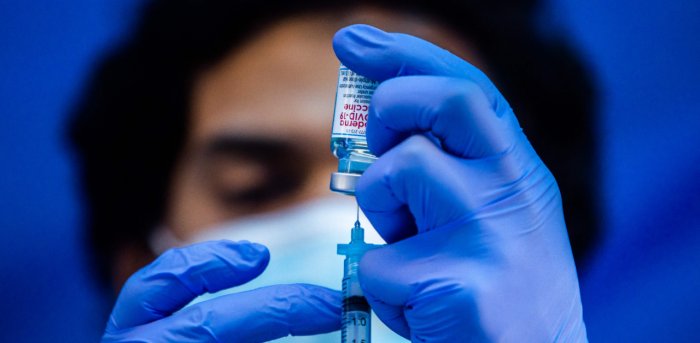Vietnam calls for IP right waiver on Covid-19 vaccine
Vietnam said waiving IP rights on coronavirus vaccine helps control the global pandemic spread.
Vietnam has called on intellectual property waiver for Covid-19 vaccine amid thin supply for low-income countries.
| Limited exports from the US were denting vaccine manufacturing in India. Photo: AFP/VNA |
She said the waiving patents help open up opportunities to control the spread of the pandemic.
The proposal to waive Covid-19 vaccine patent rights, which was first introduced before the World Trade Organization (WTO) last fall by South Africa and India, would cover patents, industrial designs, copyrights, and protection of trade secrets.
More than 120 countries and territories, including the US have been supporting the proposal.
A waiver would make it easier for countries that require compulsory licensing to allow a manufacturer to export vaccines.
The move came amid growing concern that low- and middle-income countries were being left out after wealthy nations reached deals with vaccine makers.
“This is a global health crisis, and the extraordinary circumstances of the Covid-19 pandemic call for extraordinary measures. The administration believes strongly in intellectual property protections, but in service of ending this pandemic, supports the waiver of those protections for Covid-19 vaccines,” US Trade Representative Katherine Tai in a statement.
She added the administration will “actively participate in text-based negotiations at the WTO needed to make that happen,” but cautioned that “those negotiations will take time.”
Dr Tedros Adhanom Ghebreyesus, director general of the World Health Organization, said he supports patent waiver to help countries make and sell cheap vaccine copies.
Writing to the Guardian, Tedros argues that the manufacturers will still get some reimbursement. “Waiving patents temporarily won’t mean innovators miss out. Like during the HIV crisis or in a war, companies will be paid royalties for the products they manufacture,” he said.
Many pharmaceutical companies and governments in the US, UK and Europe are strongly opposed to the waiver, with or without compensation. They back the argument of the International Federation of Pharmaceutical Manufacturers and Associations, based in Switzerland, that cutting companies’ returns is a disincentive to innovation.
The proposal also faced resistance among some EU leaders, notably from Germany, according to AP.












